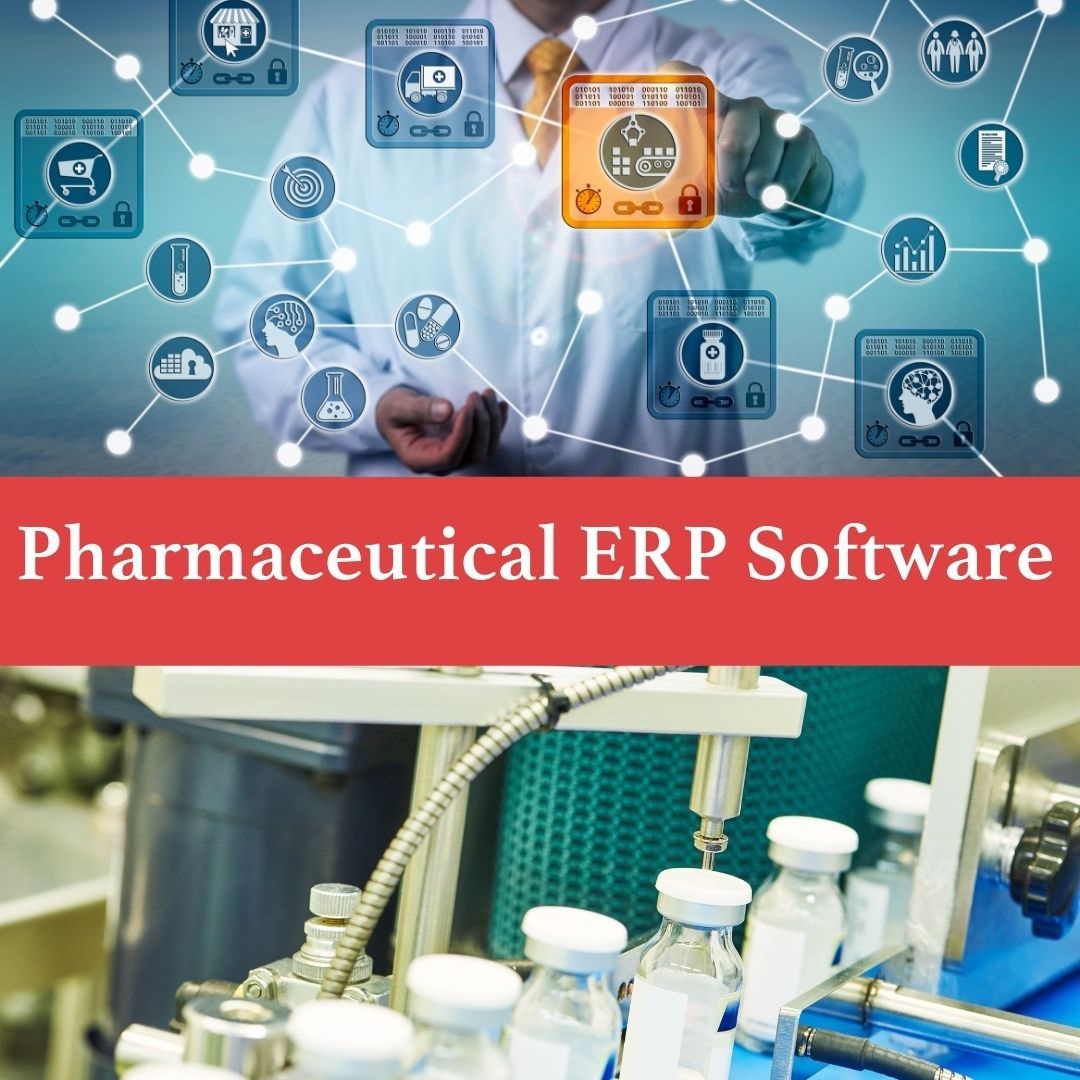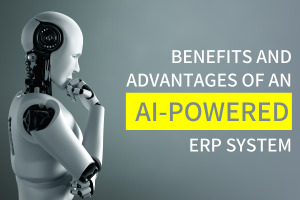ERP software is playing a major role in industries of all types, which are under pressure to streamline their businesses and to achieve efficiencies across all areas of operation. The pharmaceutical industry is no exception.
The industry faces many complex challenges relating to increasing competition, changing consumer dynamics, pressure to reduce prices, process complexities, quality control and even healthcare reforms brought on by government pressure.
The main challenge for most pharmaceutical businesses is to streamline the business and to identify areas for differentiation and competitive advantage. It is within this challenging environment that ERP software systems have become a key business strategy.
WHAT ARE ERP SOFTWARE SYSTEMS?
ERP systems have been around for some time but continue to grow in sophistication and effectiveness. Think SAP, Oracle NetSuite, or Sage Intacct, to name a few.
An ERP solution is a software system that captures data from different processes within an organisation and integrates them into a central information system. This single source of information provides management with a wholistic view of the operation and allows for more effective decision making and use of resources.
The pharmaceutical industry is highly complex in nature, which makes ERP the perfect solution for simplifying business operations and for creating business efficiencies.
Large and more complex pharmaceutical companies benefit from the ability to simplify information systems across myriad departments such as production, supply chain management, procurement, accounting and the like. Any critical area of the business can be integrated.
The trick is to identify the appropriate ERP software solution for the organisation. Not all systems can integrate effectively into an existing information system and the alternative is the introduction of a completely new ERP solution for the company.
VARIOUS BENEFITS OF ERP TO THE PHARMACEUTICAL INDUSTRY?
The following are some examples of how ERP benefits companies in the pharmaceutical industry:
Product Formulation Management
The pharma industry spends billions on the research and formulation of a comprehensive range of medical products. Each individual formulation has massive commercial potential and is highly protected by copyright. Needless to say, each formula has to be meticulously followed during the manufacturing process.
ERP systems help to manage the complexities involved in the formulation process, for instance storing complex manufacturing instructions, helping to managing revisions to formulas, defining procedures, monitoring quantities and the like.
The ERP system automates these processes and removes much of the manual input, resulting in faster turnaround times, greater efficiency, cost savings and the elimination of human error.
More Accurate Product Costing
Due to the many functions and departments involved in the production process, accurate costing is a major challenge for pharmaceutical manufacturers.
Suppliers, procurement, logistics, finance, and marketing for instance, are all entities involved in the manufacturing and marketing process. Each of these generates its own individual costs. ERP helps to prevent a silo mentality and ensures that all individual costs are centralised in the system, and clearly within sight of finance and accounting.
The centralised access to data and information, enables more accurate determination of raw material and other input costs and therefore leads to more effective and competitive pricing.
Complying to Strict Regulations
Given the nature of pharmaceutical products it goes without saying that adhering to strict legislation and regulations is a pre-requisite. To make matters more complex, these regulations vary from country to country. Furthermore, there are constant updates and changes that occur.
Maintaining global product standards and adhering to modern protocols would be almost impossible without the help of specialist ERP Software like SAP, Infor CloudSuite Industrial or Oracle Netsuite. These assist companies to keep up with changing rules and regulations and to ensure compliance
Efficient Inventory Control
ERP plays a critical role when it comes to balancing supply and demand. And given the complex product ranges and volumes produced by many large pharmaceuticals, maintaining an efficient supply chain is a major focus area. Bottle necks and out-of-stock situations can cause major complications for distributors and patients alike.
An effective ERP system can also help to track materials in real-time through bi-directional material traceability, which helps to minimise the risk of shortages.
In addition, an ERP system can benefit both safety and quality levels, by ensuring that only the best quality raw materials are procured, through recognised suppliers who are verified and stored by the system.
Better Quality Control Management
The pharmaceutical industry is dominated by major brands, with brand equity ranging into the billions of Euros. Preserving the reputation and profitability of these brands is of critical importance and so naturally, the aspect of product quality is a prime focus.
The quality control and material traceability functions provided by ERP systems, ensure that every batch of product conforms to strict requirements. High quality in, means high quality out of the manufacturing process and into the market.
ERP’s material tracking and tracing processes enable companies to quickly identify non-conformance and to remove or recall materials and final product as and when the need arises.
Top-notch Security Management
Given the amount of money poured into research and development of new formulations and products, it is no wonder that security is a non-negotiable, and that all information in the system is well protected. And then there is the matter of infrastructure, network, operating system, and database security.
ERP systems are not infallible. The fact that they are interconnected means that critical data can be accessed from various departments. However, modern pharma ERP does offer high quality security protocols such as access control, data encryption, audit trails and electronic signatures, to name a few.
There are also various best practices that should be maintained by companies, such as regularly installing updates, training staff, having strong password policies and two-factor authentification.
CONCLUSION
As with most industries, ERP has an important role to play in the pharmaceutical industry and probably more so, because of the complex nature of pharma and its myriad products and categories.
The secret for success however is to ensure that you choose the right supplier to partner with your company. Professional ERP consultants will help to ensure a smooth integration of the new system into the company, without any of the challenges that can accompany new ERP introductions.
Companies like Connected IT Consulting in Ireland, work closely with their clients as part of the team, to conduct a thorough analysis, make correct recommendations, introduce the new ERP system, and provide backup long after implementation.
Related Links
ERP Project Management
Business Process mapping
Small Business ERP
ERP Consulting



